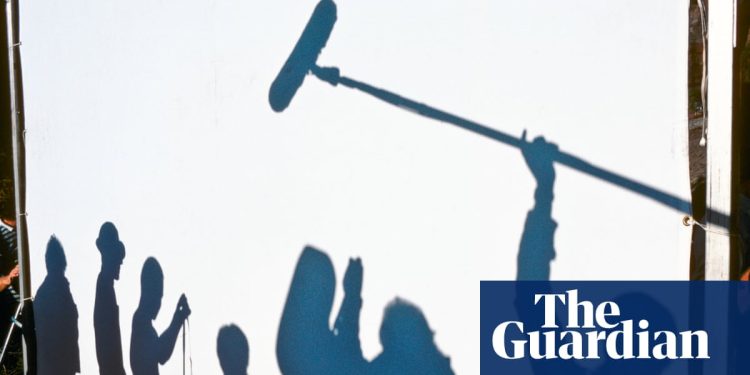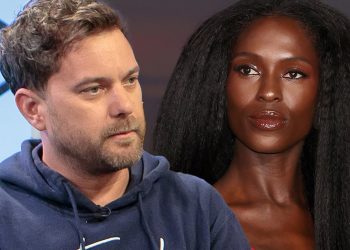For artists on television or film sets, it is not uncommon to receive a request to enter a booth filled with dozens of cameras ready to capture their image from every possible angle. Yet while cast and crew are already worried about AI’s future role in the industry, it’s an increasingly troubling endeavor.
“It happens without warning,” says Olivia Williams, who adds that she’s been scanned more times than she can remember in a career that spans from The Sixth Sense to Dune: Prophecy.
“You’re on set. You’re in costume. A friendly assistant director you already know, who brings you tea and holds your phone while you play, tells you that the VFX (visual effects) team is here today – and right after you finish the scene, could you go on the VFX bus? And off we go.”
“Actors, by and large, like to be people pleasers. Getting stuck on scanning while you’re in the middle of a scene kills your creativity, breeds fear that you’ll never work again, that your agent will let you down. So you conform.”
Lead and supporting actors, stuntmen and dancers have all told the Guardian of similar experiences on set, where they were fed into scanners despite being unclear about their rights in relation to the biometric data produced.
Williams said the performers were told that “if you want to be in the scene, or if you want the scene to look cool with the alien coming out of your brain”, then scans were required.
There was unease about the experiment for a while, but the development of “AI stand-ins” for performers and allegations about the arrival of “AI actors” have made it urgent to clarify what exactly happens to the data collected on set.
These concerns have come to light with publicity surrounding an AI actor called “Tilly Norwood.” It seems unlikely that the company behind the creation will generate the first AI star, but it has emphasized an ongoing fight to clarify the rights of performers.
Williams decided to put his head above the parapet out of concern for young actors just starting out, as well as the existential threat to performers known in the industry as supporting artists (SAs), who populate a show’s crowds and sets.
Dave Watts, an experienced SA who has appeared in numerous superhero films and major productions, has been scanned several times. He added that there were wider implications for the industry.
“I can already hear crew members saying, ‘To be honest, we don’t even need to do that anymore. We can just have the AI create a crowd of 1,000 people based on information already captured,'” he said.
“If you don’t have your usual audience of 100, 200 or 500 SA on a big production, then you also don’t need the assistant directors looking after them, and you don’t need the hair and makeup artists. You don’t need the costume designers, the costume testers, all the caterers, all the drivers and curators. There’s a whole range of jobs there that AI actually puts hazard. “
One dancer, speaking anonymously because he feared it would affect his work, raised similar points about the pressure of being scanned and the use of data. “Filming is grueling – you get up at 3 a.m.,” they said. “It’s now 8 p.m. and you’re not allowed to go home until you do. The way this is going, you really don’t have a choice.
“You wonder, did we all lose our jobs? It makes you feel a little stupid.”
Alex Lawrence-Archer, a data rights lawyer at law firm AWO who works with stakeholders on the issue, said artists were hampered by a jumble of complex and overlapping laws. He said it was crucial for them to have clearer agreements before a production begins, rather than trying to recover their data after the fact.
“Contracts are often quite poorly drafted and often contain language consistent with industry standards that have been around for many years,” he said. “They’re really not designed for these kinds of technologies. What you have is a sort of vacuum of uncertainty. In that vacuum, developers and AI studios are doing everything they can.”
after newsletter promotion
“Future training bodies are where actors and reps really need to focus their attention. They need to negotiate better, clearer contracts that truly reflect a fair deal between actors, studios and AI developers.”
There are now signs of a budding rebellion. During a recent shoot, artists were informed in advance of the scans after concerns were raised.
“The actors collectively pushed back against the atmosphere of actors lying in wait,” said one of the artists, speaking on condition of anonymity. “We were able to get them to insert some sort of addendum to our agreement, which basically prevents them from using the digital scans for anything other than the show without our written agreement.”
The battle for rights in the face of the AI industry’s thirst for data can seem hopeless. This data can be collected from various sequences and sources that elude professional artists. There is, however, a consensus on the need to regain some control.
“The technology could potentially be used in a reductionist way that would dramatically reduce the need for human performers, or it could be used to benefit creativity and build things in a really positive way,” said Theo Morton, professional stuntman and member of the British Stunt Register. “There’s a lot of uncertainty and no one really knows. That’s why it’s so important to create contractual safeguards, to protect against this possible erosion of control that could occur.”
Williams, however, is among those who despair that control has already been lost.
The big unknown is where exactly the data training AI models come from. Lawrence-Archer said it remained a closely guarded secret, but it needed to be revealed. He also warned against reducing the issue to additional remuneration for performers.
“The AI industry relies on large amounts of data,” he said. “Somebody put them together. We know these issues are very sensitive for developers and AI studios. We’ve helped actors make these data access requests, trying to find out more. I personally know actors who have been paid by AI companies to withdraw these requests.
“We need to build a world in which human creativity, connection and performance of actors continue to be valued. If we focus only on legal and remuneration issues, there is a risk that actors will become data workers, rather than the creative artists that they are.”









